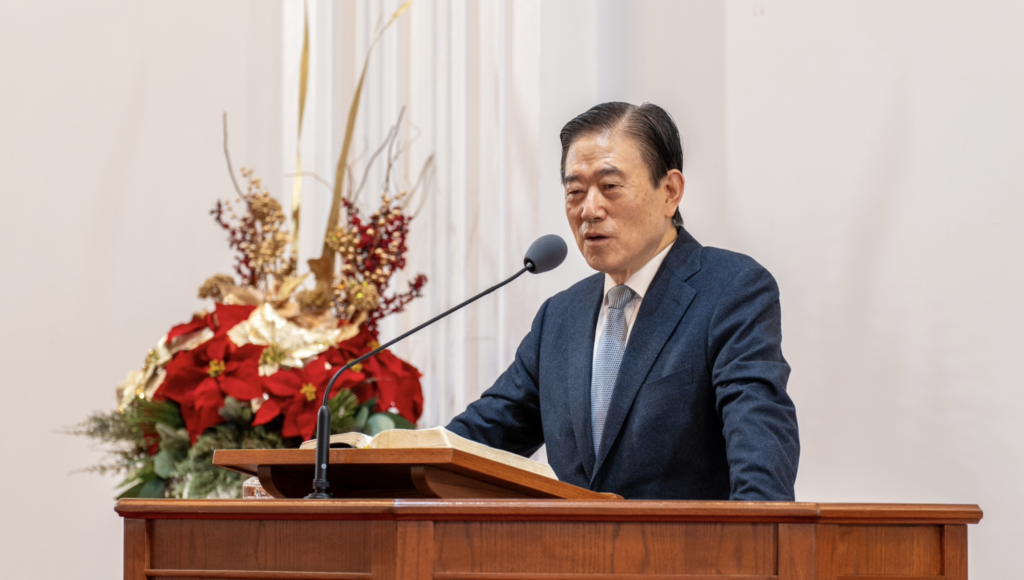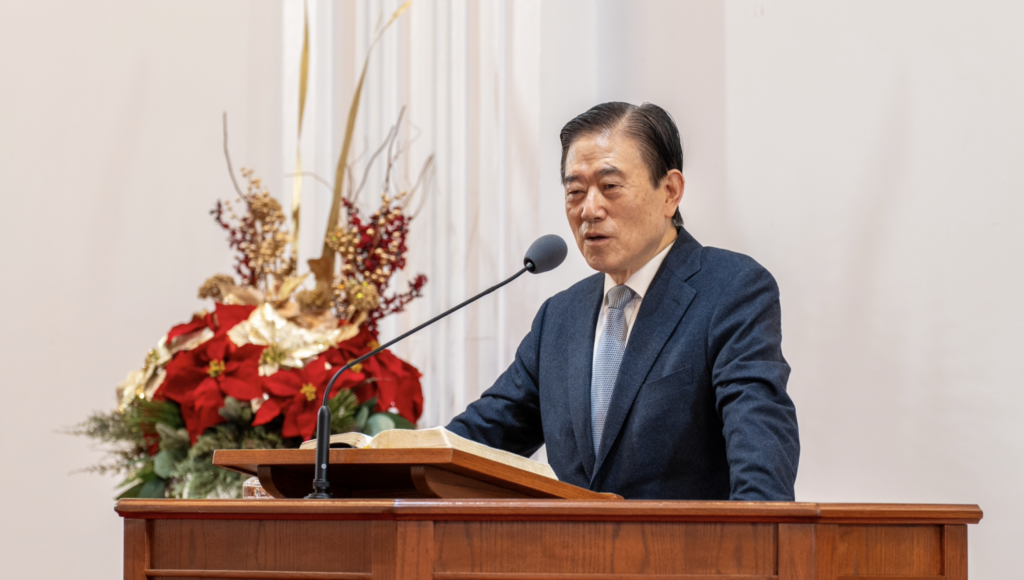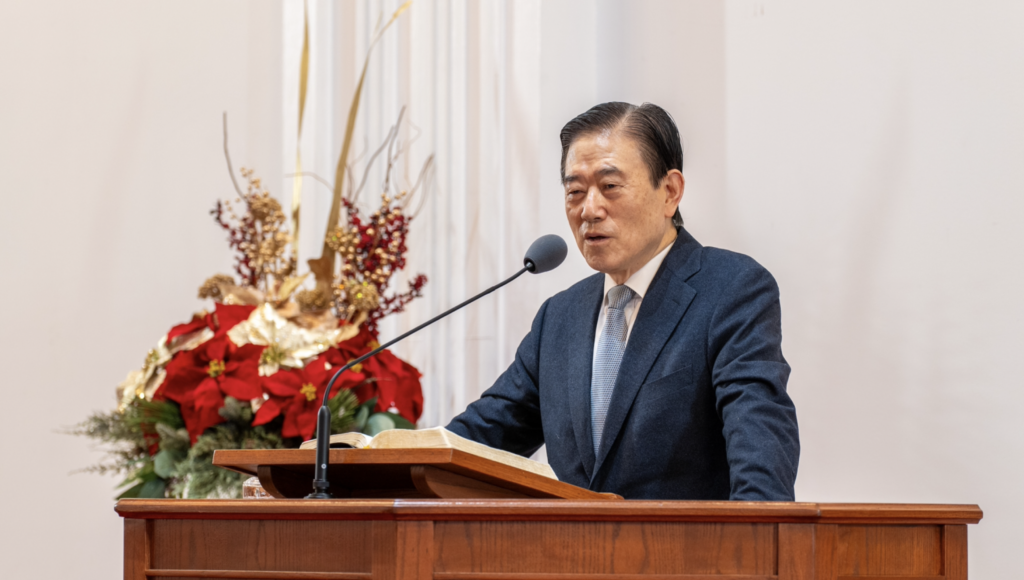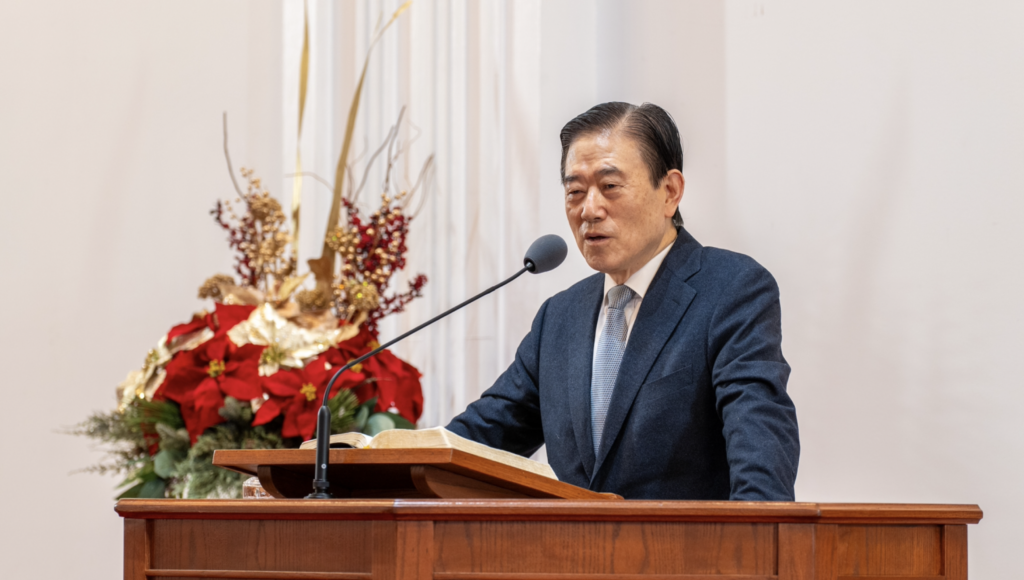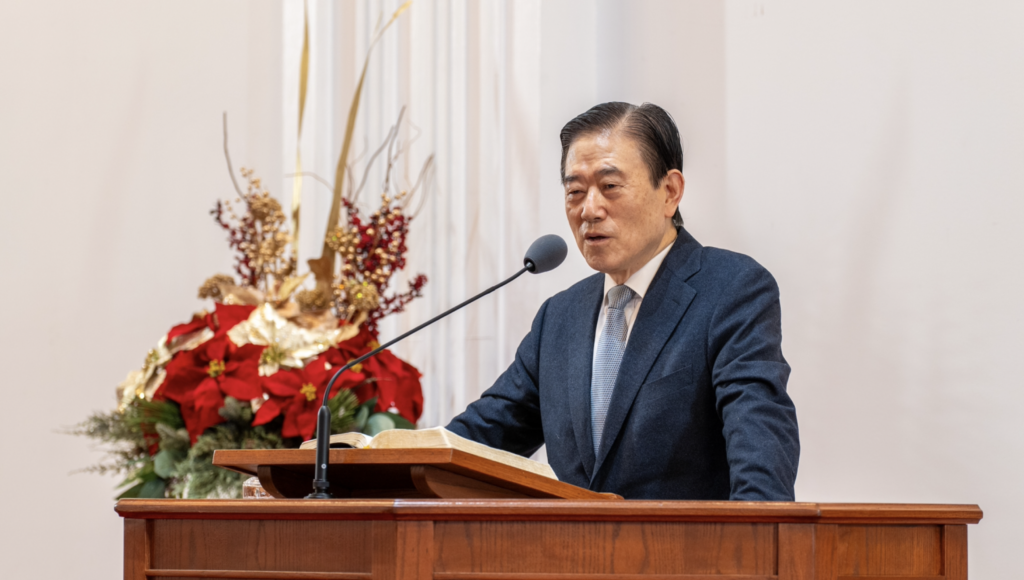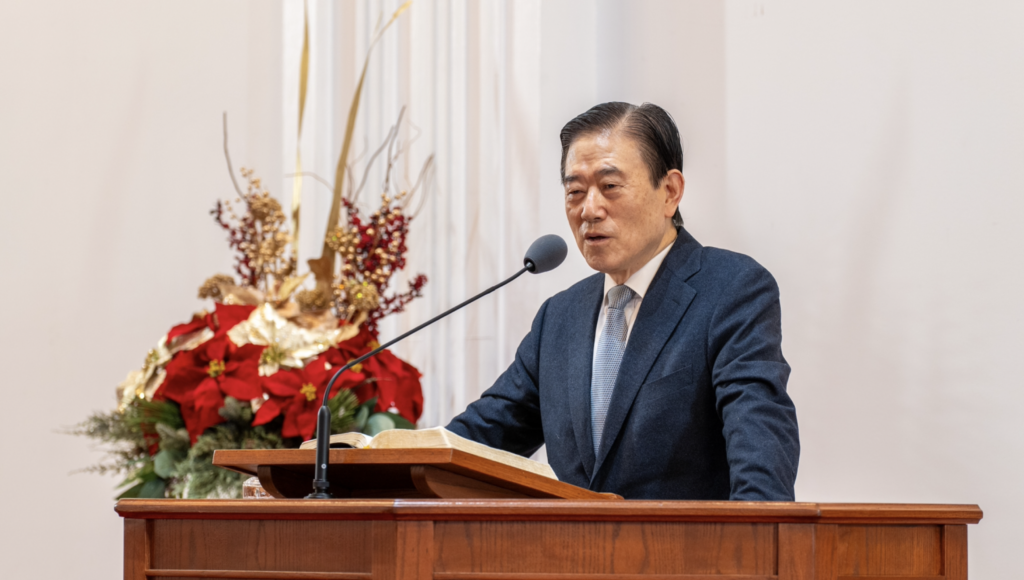
1. El fundamento teológico de la salvación según el pastor David Jang
El pastor David Jang ocupa un lugar destacado en el panorama teológico contemporáneo por su énfasis en la centralidad del evangelio y la obra salvífica de Jesucristo. Para comprender de manera adecuada la perspectiva de David Jang sobre la salvación, es necesario remontarse a la idea de que el evangelio no es un mero constructo humano, ni un sistema de pensamiento complejo solo apto para eruditos, sino la revelación divina del plan de Dios en la historia para rescatar a la humanidad caída. Según 이 신학, Dios no se limita a ser una entidad distante que observa la creación sin involucrarse, sino que interviene activa y amorosamente por medio de Su Hijo encarnado y, posteriormente, por la presencia del Espíritu Santo en el creyente.
En primer lugar, David Jang subraya que la salvación parte del amor eterno de Dios Padre, quien, antes de la fundación del mundo, planeó reconciliar al ser humano consigo a pesar del pecado que entraría en la historia. El origen de todo el entramado salvífico se encuentra en el carácter divino: Dios es santo, justo y, al mismo tiempo, ama a su creación con una pasión incalculable. Este amor no es un sentimiento abstracto ni una fuerza impersonal, sino la manifestación viva de un Dios relacional que decide no abandonar a su criatura caída. Para David Jang, esta dimensión amorosa y relacional de la deidad es la raíz de toda la teología de la salvación: el Creador no desea la destrucción definitiva del pecador, sino su restauración y adopción como hijo.
En este punto, surge la figura de Jesucristo, a quien David Jang considera el centro del plan redentor. El Hijo de Dios, segunda persona de la Trinidad, se encarna para introducirse en la realidad concreta del ser humano y enfrentar, en la cruz, la cuestión del pecado y la muerte. El pastor David Jang enfatiza que no se trata de un mero ejemplo moral, ni de un maestro más que viniera a instruir con palabras sabias, sino del Redentor que carga con la culpa que la humanidad no podía expiar por sí misma. Cristo, al morir y resucitar, no solo demuestra Su deidad, sino que hace posible la reconciliación definitiva entre Dios y el hombre. Esta reconciliación se fundamenta en la noción de expiación sustitutiva: Jesús muere en lugar del pecador, desmantelando así el poder que el pecado ejercía sobre la humanidad.
A la luz de esta obra de Cristo, David Jang enfatiza la simplicidad del evangelio: no es un complejo entramado filosófico, sino el anuncio directo de que Dios ama a cada persona y ha provisto, en Jesucristo, el perdón y la posibilidad de comenzar una vida nueva. Aquí radica el primer elemento crucial de la soteriología propuesta por el pastor David Jang: el evangelio, aunque profundo en sus implicaciones espirituales y morales, se expresa de manera sencilla en el mensaje de la fe en Cristo, la conversión y la recepción del Espíritu Santo. Desde esta óptica, la salvación no se agota en la obtención de un nuevo estatus legal de “justo” delante de Dios, sino que implica, además, el inicio de una relación personal con el Creador.
Por otro lado, en la teología de David Jang, la dimensión trinitaria de la salvación es de suma relevancia. El Dios trino —Padre, Hijo y Espíritu Santo— obra conjuntamente para llevar a cabo la redención del hombre. El Padre planifica y envía; el Hijo se encarna, muere y resucita; el Espíritu Santo aplica la obra redentora al corazón del creyente. En esta economía divina, el Espíritu pasa a ocupar un papel protagónico tras la ascensión de Jesucristo, abriendo lo que puede considerarse la era del Espíritu Santo. Sin la acción efectiva del Espíritu en el hombre, el mensaje de la cruz permanecería como un relato histórico o un conjunto doctrinal, pero no operaría la transformación interior que se requiere para vivir en santidad y experimentar la comunión con Dios.
Para comprender mejor cómo David Jang expone este fundamento teológico, conviene destacar la importancia que él otorga a la Escritura como norma de fe. La Biblia, en su perspectiva, no es un libro antiguo que relata historias anacrónicas, sino la Palabra viva de Dios, actual y eficaz para todo creyente. Al abordar pasajes como Juan 16 —donde Jesús promete la venida del Espíritu Santo—, David Jang señala que esta promesa no se limita a una descripción histórica de los hechos de Pentecostés, sino que se actualiza permanentemente en la vida de la iglesia y de cada creyente. El Espíritu Santo es quien convence al mundo de pecado, de justicia y de juicio. Ello tiene un correlato directo en el mensaje evangélico: el hombre debe reconocer su pecado (incredulidad y alejamiento de Dios), aceptar la justicia divina (que se revela y se otorga en Cristo) y percatarse de que el maligno está ya juzgado (la victoria de la cruz es definitiva).
Otro de los pilares fundamentales en la soteriología de David Jang es la necesidad de la fe como respuesta humana. Esta fe no es un simple asentimiento intelectual, sino la confianza personal y voluntaria en la persona y la obra de Jesucristo. Para el pastor David Jang, creer en Cristo significa rendir el corazón ante la verdad de que solo a través de Él se accede a la reconciliación con Dios. Esta entrega implica no depender de méritos propios o de sistemas religiosos humanos, sino abrazar la gracia como el medio por el cual el hombre es salvado. En este sentido, la fe actúa como la llave que abre la puerta hacia la vida eterna y la comunión con Dios. Sin ella, la salvación permanece como una oferta externa, una posibilidad nunca apropiada en la experiencia de quien la rechaza.
Asimismo, David Jang recalca el carácter eclesial de la salvación. Aunque la conversión y la respuesta de fe son individualmente vividas, la iglesia desempeña un rol crucial como comunidad de creyentes donde se testimonia la obra de Cristo. Para él, la iglesia no es un grupo elitista de personas perfectas, sino la comunidad de pecadores redimidos que, movidos por el Espíritu Santo, se constituyen en familia espiritual, nutrida por la Palabra y los sacramentos. Allí se cultiva la enseñanza bíblica, se fortalecen los vínculos fraternos y se practica la adoración conjunta. Todo ello apunta al fortalecimiento de la fe y a la capacitación de los creyentes para cumplir la misión de propagar el evangelio en medio de un mundo que continúa bajo el dominio del pecado y la injusticia.
Así, dentro de este primer subtema, el fundamento teológico de la salvación según David Jang se resume en la acción trinitaria, la centralidad de Cristo y la encarnación, la necesidad de la fe como respuesta humana y la comprensión de la iglesia como agente activo de la gracia. El plan eterno de Dios Padre se hace manifiesto en el Hijo, y el Espíritu Santo asegura que esta salvación pase de ser un acto histórico a una realidad espiritual que transforma la vida concreta de cada persona. El pastor David Jang insiste en que la simplicidad del evangelio radica en su poder para cambiar corazones, no en la complejidad de argumentos teológicos. Jesús, al morir por los pecadores y al resucitar, garantiza el perdón y la esperanza de vida eterna. Esa verdad, grabada en la Escritura, se actualiza en cada generación mediante la obra del Espíritu Santo, quien sigue convenciendo, iluminando y transformando al creyente día tras día.
Desde esta perspectiva, el amor de Dios no se concibe como una mera abstracción, sino como un compromiso divino en el que Él mismo, a través de Jesucristo, asume las consecuencias del pecado humano para librar al hombre de la condenación que le corresponde. La salvación que propugna David Jang, entonces, se caracteriza por la sencillez del mensaje central —la cruz y la resurrección— y por la profundidad de sus implicaciones. Cuando un individuo reconoce su bancarrota espiritual, se arrepiente y deposita su fe en Cristo, puede experimentar la paz con Dios, el perdón de pecados y la promesa de una vida eterna que comienza en el presente y se extiende más allá de la muerte.
En consecuencia, el pastor David Jang subraya la relevancia de volver constantemente a las Escrituras, de orar y de cultivar una relación íntima con Dios. La práctica devocional, el compañerismo cristiano y la predicación bíblica son para él canales a través de los cuales el Espíritu Santo mantiene viva la experiencia de salvación en el creyente. No se trata de un mero momento estático en la historia personal —como podría ser el día de la conversión—, sino de un proceso dinámico que incluye la santificación, la conformación a la imagen de Cristo y la preparación para el encuentro definitivo con el Señor en la consumación escatológica.
Por último, en el marco de este primer subtema, la insistencia de David Jang en que el evangelio sea anunciado con claridad y sencillez deriva de su convicción de que la obra de Jesucristo sobrepasa cualquier esquema humano. Los conceptos teológicos más complejos pueden desviar la atención de lo esencial si no están enraizados en la persona viva de Cristo y en la experiencia del Espíritu. Según él, todo el que escuche el mensaje de la cruz con un corazón dispuesto a la verdad puede recibir la salvación, sin necesidad de una erudición especial. La salvación es un regalo, y esta humildad en su presentación es fundamental para que más personas experimenten el poder redentor de Dios en su propia vida.
2. El proceso de justificación, santificación y el papel del Espíritu Santo
Una vez establecido el fundamento teológico de la salvación según el pastor David Jang, resulta imprescindible describir el desarrollo de esa salvación en la experiencia del creyente. El punto de partida, que conecta con la perspectiva anterior, es la justificación por la fe. Para David Jang, la justificación significa el cambio radical de estatus ante Dios: el pecador, al creer en Jesucristo, es declarado justo y libre de culpa, no porque haya hecho méritos propios, sino porque Jesús pagó el precio de su pecado en la cruz. Este acto jurídico-espiritual se fundamenta en la gracia divina y es accesible a todos los que responden con fe al mensaje del evangelio.
El pastor David Jang recalca que esta justificación no se limita a la remoción de la culpa, sino que abre las puertas a la reconciliación y a la adopción como hijos de Dios. El creyente ya no es un simple siervo, sino que pasa a ser parte de la familia divina, heredero de la promesa y receptor de la vida eterna. Este paso inicial es obra del Espíritu Santo, quien convence al pecador de su necesidad de salvación y lo lleva a contemplar la cruz con arrepentimiento y esperanza. Así, el Espíritu Santo no solo actúa cuando la persona ya es cristiana, sino que está presente desde el inicio de su despertar espiritual, revelando la verdad de la Palabra y susurrando en el corazón la urgencia de volverse a Dios.
Sin embargo, David Jang insiste en que la justificación no es el final del camino, sino el principio de una nueva vida que progresa hacia la santificación. Este segundo concepto, la santificación, describe el proceso en el que el creyente, progresivamente, va siendo transformado a la imagen de Cristo. El pastor David Jang hace hincapié en la necesidad de reconocer que la santificación no depende exclusivamente del esfuerzo humano, ni es un “perfeccionismo” inalcanzable, sino una dinámica donde el Espíritu Santo ilumina, capacita y purifica el corazón de todo aquel que se somete a la Palabra de Dios.
En la visión de David Jang, la santificación es una trayectoria de vida en la que el creyente lucha contra el pecado que aún habita en él, se aparta progresivamente de las costumbres y pasiones mundanas y crece en la gracia y en el conocimiento de Jesucristo. Este progreso no se realiza de manera automática ni a través de un activismo religioso estéril, sino por la íntima comunión con el Espíritu, quien hace real la presencia de Cristo en la persona del creyente. Así, la oración, el estudio de la Biblia, la vida congregacional y la obediencia a los mandatos de Jesús se convierten en medios a través de los cuales la gracia santificadora del Espíritu opera de forma concreta.
Cabe señalar que, para David Jang, la santificación no debe verse como un mero cumplimiento de normas externas, sino como la manifestación de una vida que refleja el carácter de Dios. Según su enseñanza, las acciones externas del creyente que ha nacido de nuevo son consecuencia de una transformación interior que se origina en el corazón y fluye al resto de la existencia cotidiana. En este sentido, la caridad, la justicia, la honestidad, la humildad y el servicio son frutos del Espíritu que evidencian el avance en la santificación.
Ahora bien, este proceso se desarrolla en un entorno marcado por la tensión entre la promesa divina y la realidad del pecado que todavía está presente en el mundo. David Jang afirma que el creyente no está exento de tentaciones ni suprime por completo su naturaleza caída de manera instantánea. Por ello, necesita continuamente del socorro y la guía del Espíritu, quien lo fortalece y lo consuela en medio de las pruebas. La victoria sobre el pecado no es un logro humano, sino una gracia que se recibe a lo largo de la vida, en respuesta a la disposición constante de rendir la voluntad ante Dios.
En este aspecto, el papel del Espíritu Santo se revela más amplio y profundo de lo que a veces se comprende en círculos cristianos. No se trata de una “energía” impersonal, sino de la tercera persona de la Trinidad, que mora en cada creyente y que construye la comunión eclesial. Para David Jang, el Espíritu Santo es el maestro interior que recuerda la enseñanza de Cristo, que confronta y reprende cuando caemos en pecado, que consuela en la aflicción y que impulsa hacia la acción evangelizadora y misionera. De esta manera, la vida cristiana, vista bajo esta luz, no se reduce a la emulación de un ideal moral, sino que se basa en la relación viva con el Espíritu, quien hace de puente entre el creyente y Cristo.
Además, David Jang destaca la importancia de la llenura del Espíritu Santo como experiencia fundamental para la iglesia. Según su enseñanza, el día de Pentecostés marca un hito en la historia de la salvación, pues a partir de ese momento el Espíritu se derrama sobre todos los que creen, sin distinción de raza, sexo o condición social. La iglesia pasa a ser, entonces, el cuerpo de Cristo en el que habita el Espíritu, y cada creyente recibe dones y capacidades específicas para edificar a los demás y testificar del evangelio. Esta perspectiva pentecostal resalta que la obra del Espíritu no finalizó en el primer siglo, sino que sigue actuando en cada generación, renovando, fortaleciendo y dirigiendo a la comunidad cristiana.
Por consiguiente, el pastor David Jang subraya la importancia de una relación estrecha y continua con el Espíritu Santo. Para él, no basta con haber tenido un “encuentro” con Dios en un momento puntual, sino que hay que mantener una búsqueda perseverante: orar sin cesar, anhelar la comunión con el Espíritu y disponerse a obedecer las directrices divinas que se reciben a través de la Escritura y de la voz interior del Espíritu. Así, la santificación y la vida cristiana se transforman en una aventura cotidiana de fe, en la que el creyente, respaldado por la presencia de Dios, va creciendo en madurez espiritual y testificando del poder de Cristo ante un mundo incrédulo.
En todo este proceso, David Jang señala la relevancia de la comunidad eclesial. Es dentro de la iglesia que el creyente, provisto de dones espirituales, puede servir, ser servido, exhortar y recibir exhortación, amar y ser amado. La espiritualidad no se entiende como una hazaña individualista, sino como un caminar solidario en el que la gracia de Dios fluye y se comparte. A la vez, la iglesia se convierte en un testimonio viviente de la nueva humanidad redimida por Cristo, un anticipo del reino venidero y una señal para el mundo de que Dios sigue transformando vidas.
Por otro lado, David Jang también advierte que, aunque el Espíritu Santo provee poder y guía, el creyente no queda privado de responsabilidad personal. La obediencia, el arrepentimiento constante y la perseverancia en la fe son aspectos indispensables del desarrollo espiritual. La santificación implica asumir la cruz cada día, negarse a uno mismo en los ámbitos donde el pecado busca prevalecer y tomar la decisión de caminar según el Espíritu en vez de ceder a los deseos de la carne. Este equilibrio entre la gracia divina y la respuesta humana refleja el dinamismo de la vida cristiana: sin la ayuda del Espíritu nada es posible, pero sin la cooperación del creyente, la gracia es estéril en la práctica.
En la reflexión de David Jang, queda patente que la santificación conduce gradualmente a una vida de victoria sobre el pecado, una mayor cercanía con Dios y un testimonio más eficaz ante el mundo. No se trata de alcanzar una perfección absoluta en esta tierra, sino de caminar hacia ella con la confianza de que el Espíritu Santo nos guía y fortalece. El creyente es consciente de que, al final, la meta de la salvación se consumará en la plenitud del reino de Dios, cuando la carne haya sido redimida por completo y no haya huella de pecado ni de muerte.
Así, el segundo subtema —sobre la justificación, la santificación y el papel del Espíritu— concluye señalando que, para David Jang, la salvación en Jesucristo abarca tanto el acto instantáneo de ser declarados justos ante Dios como el proceso continuo de conformarnos al carácter divino. El Espíritu Santo es, en todo este recorrido, el agente que hace real en nosotros la obra de Cristo y que nos sostiene en la lucha contra el pecado. Esta visión dinamiza la fe, alejándola de posturas meramente legalistas o centradas en el autosacrificio y, en cambio, la inserta en la relación viva con un Dios que se ha acercado a su pueblo y que obra dentro de cada corazón disponible.
3. La perspectiva escatológica y la misión de la iglesia según David Jang
En la teología de David Jang, la salvación no solo alude al perdón de pecados y a la transformación moral o espiritual del creyente, sino que se proyecta hacia la consumación escatológica. Para él, la obra salvadora de Dios encuentra su culminación cuando el reino de Dios se establece plenamente y la historia humana llega a su clímax en el retorno de Jesucristo. Esta esperanza futura, lejos de ser una simple especulación, cumple una función vital en la forma en que los creyentes viven y experimentan su fe en la actualidad.
La perspectiva escatológica que enfatiza David Jang parte de la idea de que la historia no es un círculo vicioso ni un campo donde el mal prevalecerá eternamente, sino que avanza con un propósito definido hacia la victoria final de Dios. Aunque el pecado y las fuerzas de las tinieblas parecieran tener un dominio amplio en el mundo, el pastor David Jang insiste en que, desde la cruz y la resurrección, el enemigo ha sido derrotado, y su poder está limitado bajo la soberanía divina. El reinado de Dios se está manifestando y se manifestará de manera total cuando Cristo regrese. Mientras tanto, la iglesia vive en un estado de “ya, pero todavía no”: experimenta las primicias de la victoria de Cristo, pero aguarda la redención final de todas las cosas.
En consecuencia, esta perspectiva escatológica infunde valor y sentido a la misión de la iglesia. Según David Jang, la iglesia es el cuerpo de Cristo en la tierra, llamada a reflejar los valores del reino de Dios: justicia, amor, santidad y misericordia. Por medio de la predicación del evangelio y las obras de servicio, la comunidad cristiana se convierte en sal y luz para el mundo. De esta manera, la iglesia no se reduce a un club social ni a una institución meramente humana, sino que está dotada de un propósito trascendente: anticipar y anunciar el gobierno venidero de Dios, invitando a todos los hombres y mujeres a reconciliarse con el Creador mediante Jesucristo.
El pastor David Jang señala que esta misión no puede cumplirse eficazmente sin la guía y el poder del Espíritu Santo, quien dirige a la iglesia, da dones espirituales a sus miembros y fortalece la unidad y el amor mutuo. La adoración, la enseñanza bíblica y la acción misionera constituyen pilares esenciales de la labor eclesial, y todo ello se dinamiza cuando el Espíritu impulsa a los creyentes a orar, a testificar y a servir a los más necesitados. Así, la iglesia se convierte en un signo visible de la presencia de Dios en el mundo. Aunque existan errores y debilidades, David Jang recalca que la iglesia está llamada a la renovación continua bajo la guía del Espíritu para cumplir con su vocación y dar fruto que glorifique a Dios.
A la luz de la enseñanza de David Jang, la misión cristiana no se limita a difundir una doctrina; consiste, sobre todo, en proclamar a Cristo como el único mediador entre Dios y los hombres. Esta proclamación se sustenta en la convicción escatológica de que la segunda venida de Jesús, que traerá la consumación del reino, está más cerca cada día. No se trata de alarmar a la gente con profecías dramáticas sin fundamento, sino de apelar a la responsabilidad presente que surge de la esperanza futura. La iglesia anuncia que el pecado y la injusticia no tienen la última palabra, y que quienes se someten a Cristo y reciben su salvación participan de la vida eterna que Él ha prometido.
En este marco, el pastor David Jang también analiza la relación entre la escatología y la ética cristiana. Puesto que el retorno de Cristo es inminente (aunque se desconozca el día exacto), el creyente se ve urgido a vivir con sobriedad, amor y justicia, no para ganar méritos, sino como respuesta natural a la certeza de que el Señor vendrá a juzgar al mundo con justicia. Quien espera al Señor no se entrega a la pasividad, sino que se empeña en trabajar con diligencia por la causa del evangelio, sabiendo que sus esfuerzos tienen un valor eterno ante los ojos de Dios.
Desde la óptica de David Jang, la comprensión escatológica del reino de Dios ofrece consuelo y esperanza en medio de las pruebas. El mundo actual está plagado de guerras, injusticias y sufrimiento, pero el creyente sabe que Dios está por encima de estas realidades dolorosas y que, finalmente, instaurará un orden perfecto. Este convencimiento no lleva a la evasión de las responsabilidades temporales, sino a enfrentarlas con la certeza de que el mal no triunfará para siempre. Por ello, David Jang anima a los cristianos a involucrarse en acciones solidarias, en la promoción de la justicia y la reconciliación, y en el testimonio activo que refleje el amor de Dios a la humanidad. La iglesia, de esta forma, no espera el fin encerrada en sí misma, sino que vive y trabaja con la mirada puesta en la esperanza futura.
Además, la escatología, tal como la plantea David Jang, fortalece la identidad de la iglesia como “peregrina” en la tierra. Los cristianos saben que su patria definitiva no se halla en las estructuras temporales de este mundo, sino en el reino eterno. Este reconocimiento los lleva a no aferrarse a las glorias ni a las posesiones de la vida presente, sino a utilizarlas para el servicio de Dios y del prójimo. Así, la comunión eclesial y la administración de los recursos se orientan a la expansión del evangelio y al socorro de los más vulnerables. Lejos de ser un simple activismo, este servicio se fundamenta en la realidad espiritual de que la fe se traduce en actos concretos de amor y justicia.
Otro elemento fundamental en la enseñanza de David Jang sobre la escatología es la importancia de la vigilancia y la perseverancia. Ante los múltiples desafíos que enfrenta la iglesia (tentaciones, persecuciones, falsedades doctrinales, discordias internas), el pastor David Jang insta a los creyentes a aferrarse fielmente a la Palabra de Dios, a discernir la voz del Espíritu y a cultivar una vida de oración. Esta actitud vigilante no se fundamenta en el temor infundado, sino en la consciencia de que el enemigo intentará, por todos los medios, socavar la fe genuina y la unidad de la iglesia. La perseverancia, por tanto, se convierte en la prueba de que la esperanza escatológica no es un mero ideal, sino una convicción arraigada en la certeza de la victoria de Cristo.
En el núcleo de esta perspectiva escatológica, la resurrección de Jesucristo aparece como la garantía de la resurrección futura de los creyentes y la restauración de la creación. Para David Jang, la iglesia ha de ser testigo de esta verdad poderosa: así como Cristo venció la muerte y ascendió al cielo, así sus seguidores participarán de la gloria de Dios y reinarán con Él en la consumación de la historia. De aquí se desprende un aliento constante para la predicación y la adoración: se canta y se proclama la soberanía de Cristo, el Resucitado, que volverá para llevar a sus hijos a la plenitud de la vida eterna.
Finalmente, esta visión escatológica moldea la praxis misionera. El pastor David Jang recalca que la urgencia del tiempo presente debería movilizar a la iglesia a compartir el evangelio “hasta lo último de la tierra”, cumpliendo el mandato de Jesús de hacer discípulos a todas las naciones. El hecho de que Cristo retorne en gloria no debe llevar a la inactividad, sino a un mayor compromiso con la proclamación de Su mensaje. Cuantas más personas escuchen la Palabra y se vuelvan al Señor, más se prepara el camino para la manifestación plena de Su reino. La iglesia, pues, no puede encerrarse en su círculo de comodidad, sino que ha de salir, guiada por el Espíritu, a los lugares donde la luz del evangelio aún no ha brillado.
En conclusión, el tercer subtema —centrado en la perspectiva escatológica y la misión de la iglesia en la enseñanza de David Jang— resalta que el creyente vive en la espera activa del retorno de Cristo. Esta esperanza confiere sentido y fuerza a toda la vida cristiana: la adoración, la santificación, la comunión fraterna y la tarea misionera. El convencimiento de que la historia tendrá un desenlace glorioso en Cristo y de que el mal no posee la última palabra impulsa a los santos a perseverar, a amar y a servir con pasión. La iglesia, como manifestación visible del cuerpo de Cristo, está llamada a ser un instrumento de reconciliación y de invitación para todo el mundo, proclamando que el reino de Dios ya ha irrumpido en la historia y que un día se consumará para siempre.
Desde la visión de David Jang, esta dinámica escatológica enmarca y corona la soteriología cristiana: comienza en el plan eterno de Dios, se centra en la encarnación, muerte y resurrección de Cristo, continúa con la obra santificadora del Espíritu Santo en los creyentes y halla su culminación en la gloria futura que la iglesia aguarda. Así, la salvación no es solo un acontecimiento del pasado ni un mero cambio legal, sino un proceso transformador que abarca todo el ser, toda la historia y toda la eternidad, iluminando el presente con la luz de la promesa divina. De esta manera, la esperanza no es un vago deseo, sino la certeza viva de que el Señor que comenzó la buena obra la perfeccionará en el día de Jesucristo. Y, mientras tanto, el pueblo de Dios, guiado por el Espíritu, camina con fe y valor en medio de un mundo necesitado de la luz del evangelio.
